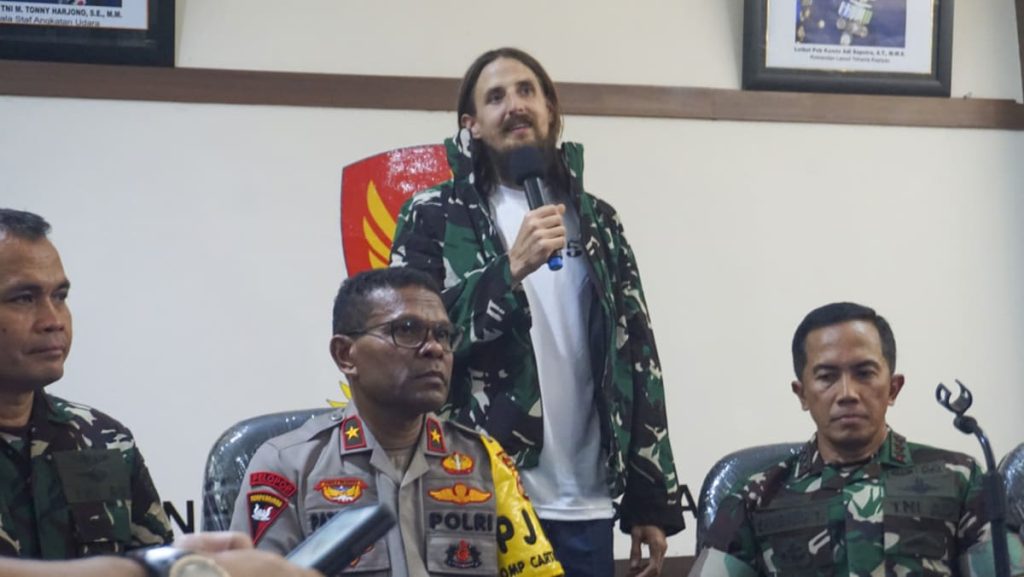Jakarta and Wellington have denied claims made by rebels in Papua that a New Zealand pilot, Phillip Mehrtens, was released from captivity after a payment was made to a local leader. The West Papua National Liberation Army (TPNPB) released Mehrtens after 19 months in captivity, with a spokesman for the group alleging that money was given by the Indonesian government to the acting chief of the Papuan district and then passed on to the rebels without evidence. The TPNPB claimed that the pilot was then handed over to Indonesian authorities. However, New Zealand Foreign Minister Winston Peters rejected any suggestion that his country was involved in paying for Mehrtens’ release, stating that diplomacy was what secured his freedom.
Peters emphasized that New Zealand does not pay ransoms or bribes and that Mehrtens’ release was the result of diplomatic efforts, not monetary transactions. He expressed his frustration at the suggestion of a bribe being paid, claiming that it undermined the hard work of officials who had worked to secure the pilot’s release without making any mistakes or causing offense. The allegations of a bribe being paid have cast a shadow over the diplomatic efforts that led to Mehrtens’ release, according to Peters.
The TPNPB maintained that the money given by the Indonesian military and police ended up with the rebels through a family system, ultimately resulting in Mehrtens being handed over to Indonesian authorities. However, Jakarta and Wellington steadfastly denied any involvement in such payments, with Peters denouncing the notion of bribes being paid in connection with the pilot’s release. The conflicting narratives regarding how Mehrtens was freed have created tension between the parties involved, raising questions about the legitimacy of the claims made by the TPNPB.
The release of Phillip Mehrtens after nearly two years in captivity has brought attention to the complex situation in Papua, where separatist movements and armed groups have been fighting for independence from Indonesia. The region has seen ongoing conflict and violence, with rebels accusing the government of human rights abuses and seeking greater autonomy. The case of Mehrtens highlights the challenges faced by both the authorities and the insurgents in navigating this volatile and contentious issue, with conflicting accounts of the events surrounding his release further complicating the situation.
The denial of any involvement in payments for Mehrtens’ release by both Jakarta and Wellington reflects the sensitivity of the situation and the need to carefully manage the fallout from the allegations made by the TPNPB. The insistence on the part of New Zealand that no ransom or bribe was paid underscores the importance of upholding diplomatic principles and avoiding actions that could exacerbate tensions in the region. Moving forward, it will be essential for all parties involved to maintain open communication and work towards a peaceful resolution of the conflict in Papua, ensuring the safety and well-being of all individuals affected by the ongoing strife in the region.
In conclusion, the conflicting accounts of the events surrounding Phillip Mehrtens’ release highlight the challenges and complexities of the situation in Papua, where separatist movements and armed groups continue to clash with Indonesian forces. The denial of any involvement in payments for his release by Jakarta and Wellington underscores the need for careful diplomacy and strategic communication to navigate this sensitive issue. As the region grapples with ongoing conflict and unrest, it is crucial for all parties to engage in dialogue and collaboration to work towards a peaceful resolution that addresses the grievances of all sides and promotes stability and security in Papua.


